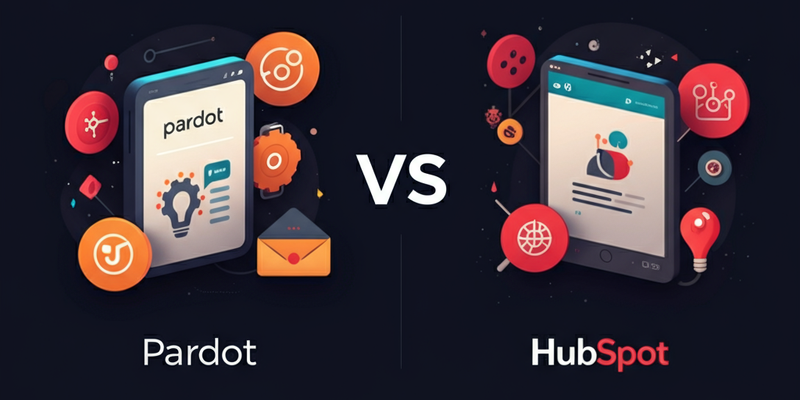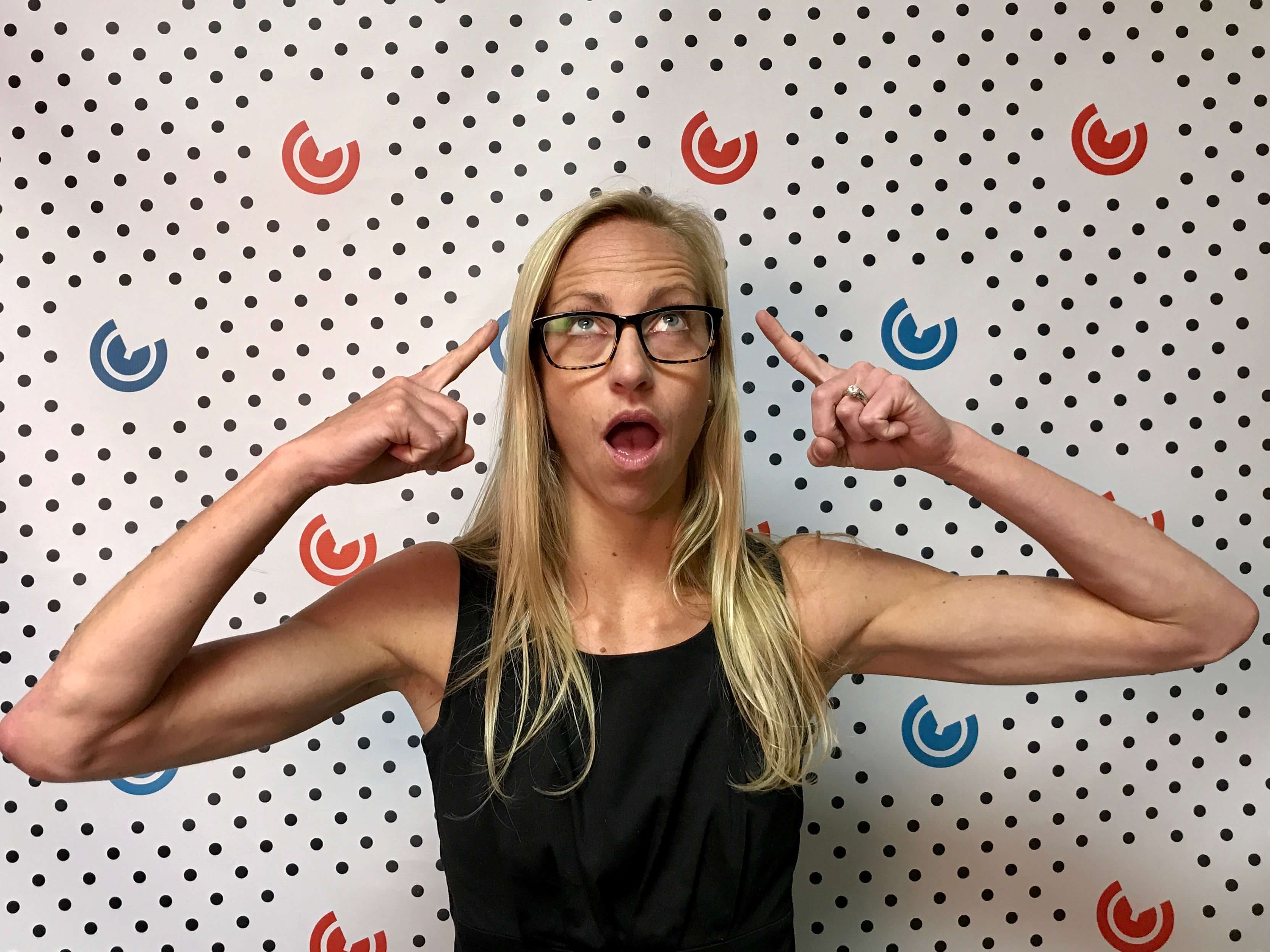How HubSpot AI Tools Supercharge Lead-Nurturing Campaigns
Let's paint a familiar picture: sales teams work tirelessly, chasing leads that may never convert. Meanwhile, the marketing team labors to deliver...
I know what I am looking for, and would like to chat.
A team of data-driven marketers obsessed with generating revenue for our clients.
Because the proof is in the pudding.
At Campaign Creators we live by three principles: Autonomy, Mastery, Purpose.

In today’s fast-paced digital world, businesses are constantly looking for ways to do more with less—less time, less effort, and fewer resources.
Enter marketing automation platforms, the unsung heroes of modern business operations. These automation tools aren’t just about saving time; they transform how businesses connect with their customers, streamline their workflows, and drive real results. Imagine having a tool at your fingertips that could refine your lead-nurturing strategies, optimize every step of your marketing process, and build meaningful, lasting relationships with your audience. Sounds like a dream, right?
But here’s where the story gets interesting. With so many options on the market, finding the perfect marketing automation platform can feel like navigating a maze. Among the top contenders, HubSpot and Pardot consistently rise to the top. Both are leaders in the industry and trusted by thousands of businesses worldwide, but they appeal to different needs and goals.
Picture this: you’re a marketer or business owner standing at a crossroads, wondering which path to take for your lead-nurturing CRM initiatives. Which platform will better suit your unique needs? Which one will empower you to truly connect with your audience and maximize your ROI?
In this guide, we’ll explore the features, strengths, and nuances of HubSpot and Pardot, diving into the journey of how each can transform your marketing efforts. By the end, you’ll have all the insights you need to choose the best tool for your business and unlock a new level of growth. Let’s dive in and discover which platform is the right fit for you!
Do you dream of a world where repetitive marketing tasks take care of themselves, freeing you up to focus on strategy and creativity?
That’s precisely what a marketing automation platform offers. From automating email campaigns and lead scoring to segmenting customers and generating detailed reports, these platforms are designed to do the heavy lifting for you.
They provide powerful tools to nurture customer relationships effortlessly, helping you connect with the right audience at the right time. For businesses looking to scale, improve customer acquisition, and boost retention, marketing automation becomes more than a tool—it’s a game-changer that transforms how you engage with your audience and drive results.
Let's paint a picture: a potential customer who visits your website is intrigued by your product but doesn’t take the next step. Instead, they leave, only to scroll through social media later and see one of your ads. Days go by, and they receive an email from your brand with a helpful guide that answers their lingering questions.
Over time, this builds trust in your brand, making it feel like your business truly understands their needs. Eventually, they complete a purchase, but not because of one singular interaction. This decision is the result of a carefully nurtured relationship.
The truth is, the modern buyer’s journey is no longer a straight line. It’s a tangled web of touchpoints across websites, social media, emails, and more. Businesses can’t afford to wait for leads to convert on their own passively.
That’s where lead-nurturing automation comes in. By leveraging this powerful tool, brands can create meaningful, personalized interactions at every step of the journey.
With automation, you're no longer chasing leads blindly. Instead, you're guiding them with precision, offering the right solutions at the right time. It’s about turning curiosity into trust and trust into action. Lead nurturing automation doesn’t just keep leads engaged; it transforms prospects into ideal customers, one thoughtful interaction at a time.
Platforms like HubSpot and Pardot promise to deliver on these goals, but their capabilities, user-friendliness, and innovations tell different stories.
With the importance of automation clearly understood, let's explore how HubSpot and Pardot stack up for lead nurturing.
When it comes to lead nurturing, selecting the right platform can be a game-changer for your marketing efforts. HubSpot and Pardot, two industry leaders, offer robust capabilities but approach automation and engagement in unique ways. Understanding their core differences is essential to identifying which platform aligns best with your goals, team structure, and customer needs.
Let's take a closer look at how these two solutions compare in driving meaningful results.
HubSpot is an all-in-one marketing, sales, and customer service platform. Known for its intuitive interface, HubSpot offers a dynamic toolkit for small to mid-sized businesses focusing on multi-channel engagement and content-driven marketing.
Capabilities to Note:
Pardot is designed for mid-sized to enterprise-level organizations, providing deep integration with Salesforce CRM. Pardot excels in lead scoring and B2B marketing campaigns that align closely with traditional sales cycles.
Capabilities to Note:
While both tools have their merits, innovations in automation and user-friendliness set them apart for certain use cases.
When it comes to lead-nurturing, both HubSpot and Pardot offer robust solutions tailored to support businesses in converting prospects into loyal customers. However, the tools differ in their approach, with each platform providing unique features designed to streamline workflows, personalize outreach, and drive deeper engagement.
Understanding these key aspects can help identify which solution best aligns with your organization’s goals and strategies. Take a look at this brief HubSpot vs. Pardot comparison
Winner: HubSpot
Winner: HubSpot
Winner: Tie (depends on CRM preferences)
Winner: HubSpot
Winner: HubSpot
Winner: HubSpot (for SMBs), Pardot (for Salesforce-centric enterprises)
BONUS: Need help estimating how much investment is required to make the switch from Pardot to HubSpot? Use this convenient calculator tool.
HubSpot is redefining the game for modern marketers, consistently pushing boundaries with innovative tools and cutting-edge capabilities. It's a platform that evolves with your needs, empowering you to connect with your audience in more innovative, impactful ways.
From streamlining your workflows to delivering data-driven insights, HubSpot continues to set itself apart as the go-to solution for marketers who want to stay ahead of the curve. With every new feature, it’s not just adapting to the future of marketing—it’s creating it.
Let’s dive into what makes HubSpot a true trailblazer in the industry.
HubSpot’s AI tools deliver hyper-personalized content and engagement strategies tailored to individual buyer personas.
Advanced workflows built on behavioral triggers help nurture relationships better. For instance, email sequences can fire automatically based on how a visitor interacts with your website.
Keep tabs on campaign performance through visually intuitive real-time reporting tools, ensuring alignment with strategic KPIs.
Automatically score leads based on their behavior and engagement, helping your team prioritize high-quality prospects and focus on those most likely to convert.
For businesses chasing agility and scalability, HubSpot provides a future-proof solution for lead-nurturing automation strategies.
Choosing the right marketing automation platform for your business can feel like navigating a complex maze. Every turn presents new possibilities, but challenges also demand careful evaluation.
But how do you determine which solution best aligns with your business goals? By digging deeper into their strengths and weaknesses, we can uncover the key differentiators to guide you toward making a strategic, informed choice. Here's a summary of the Pardot vs. HubSpot matchup:
Ultimately, HubSpot stands out for businesses seeking user-friendly, customizable lead nurturing in diverse CRM environments.
Out of all the Pardot competitors, it's clear to see that HubSpot is the easy answer to next-level lead-nurturing.
With intuitive automation, robust analytics, and AI-driven personalization, HubSpot is the clear frontrunner for modern businesses aiming to step up their lead-nurturing game. Where Pardot feels constrained by its Salesforce dependencies and rigid workflows, HubSpot offers freedom and flexibility to scale growth efficiently.
If your business prioritizes advanced CRM integration and already leverages Salesforce, Pardot remains a compelling option. However, HubSpot is the ultimate solution for marketing leaders looking to simplify operations, increase efficiency, and harness state-of-the-art lead-nurturing automation.
While both Pardot and HubSpot offer robust tools for lead nurturing, HubSpot consistently emerges as the leader for marketing teams striving to achieve seamless efficiency and unparalleled scalability. Its intuitive platform, unparalleled flexibility, and cutting-edge automation capabilities empower businesses to streamline processes and drive impactful results. Although Pardot might suit organizations deeply tied to Salesforce, HubSpot's comprehensive marketing solution is the premier choice for forward-thinking professionals looking to elevate their lead-nurturing strategies and achieve sustainable growth.
Discover how HubSpot can empower your team to maximize lead-nurturing efforts and achieve unstoppable growth. Partner with Campaign Creators today and take the next step toward achieving your marketing goals with expert strategies and personalized lead-nurturing solutions!

Let's paint a familiar picture: sales teams work tirelessly, chasing leads that may never convert. Meanwhile, the marketing team labors to deliver...

Hello, all, we're here today with Tammy Duggan-Herd, PhD, to talk to you about a field that can be highly applicable to marketing: psychology. If you...

Every marketer knows the feeling. You’ve crafted the perfect message, run targeted campaigns, and captured a lead’s attention. For a moment, it feels...